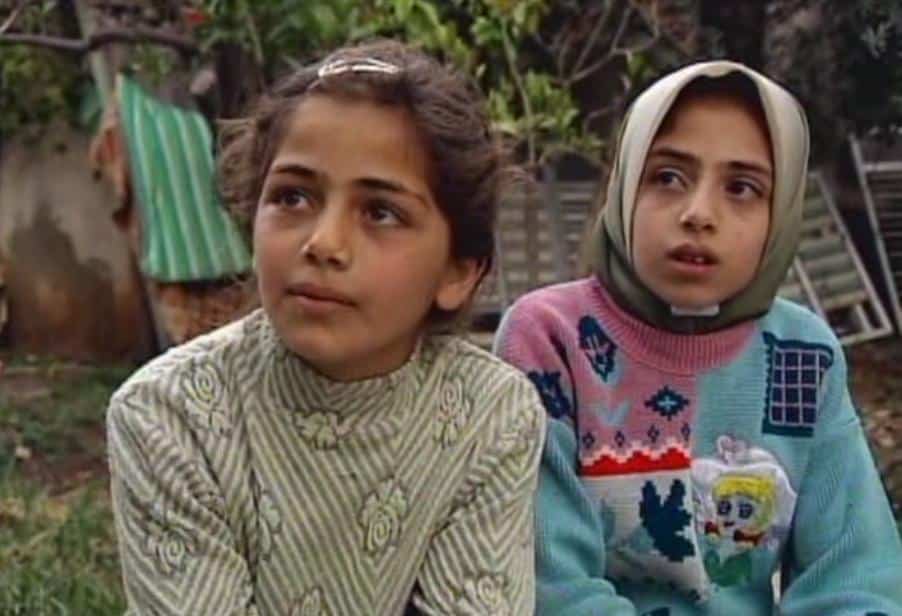“I’d like to say something that has nothing to do with hope or anything like that. But to the Israelis, I have [this] to say – ‘Proud as eagles we will live. Erect as lions we will die.’ May each Israeli bear this in mind.” The girl in the 2002 documentary, Jenin, Jenin, can be no more than 11 or 12 years young, yet the fearlessness in the young girl’s eyes and the strength in her voice unequivocally convey one word: Guerrera!
This scene remains seared in my mind as one of the most powerful of Mohammad Bakri’s film, which I saw during a community screening, sitting with about 25 others to learn more about the history of the Palestinian struggle and share solidarity with their cause.
Taking place in the aftermath of the Israeli military’s April 2002 attack on the northern West Bank refugee camp of Jenin, the film – reminiscent of the horrors repeatedly perpetrated against the largely Palestinian civilian population since October 7, 2023 – is at once eerily familiar and extremely enraging. Watching the movie gave me an acute sense of déjà vu. It was another reminder of the apathy and complicity of the U.S. government.
It’s important to note that Jenin, Jenin and its creator Mohammad Bakri, a Palestinian with Israeli citizenship, faced numerous attempts at censorship. The year the film was released, the Israeli Censorship Board banned it, calling it a “one-sided propaganda film.” They declared Jenin, Jenin a “distorted presentation” of the situation but Israel’s High Court of Justice overturned the ruling in November 2003, saying “the Censorship Board was not empowered to bar a film because it was inaccurate.”
Fast forward to January 2021 and The Palestinian Chronicle reported that the “Israeli Lod District Court ruled against [the film-maker], ordering Bakri to pay hefty compensation to an Israeli soldier who was accused, along with the Israeli military, of carrying out war crimes in April 2002.”
Of course, the above did little to prevent viewers in the rest of the world from catching the 52-minute heart-wrenching project. Jenin, Jenin is the voice of a collective, one that has been clamoring for decades to be heard and seen as human. Through interviews with the camp’s inhabitants – adults and children, alike–- Bakri takes us on an excruciatingly painful path of a people in a seemingly endless struggle for their liberation.
These are their stories.
A young, Deaf man runs frantically toward a building, using expressive hand gestures to describe the aggressions committed by the Israeli Occupation Forces (IOF). With his body language, he describes to viewers what he witnessed – holding a ‘rifle’ he ‘shoots’ then switches roles, playing a man who has been shot in the center of the forehead. The young man makes a motioning gesture as if to fall to the ground, implying the person was killed. Such is the film’s opening scene, preparing us for the destruction ahead.
Almost immediately, the image of a building collapsing flashes across the screen. My upper body still quivering as I watch Bakri slowly walking over the rubble, all that remains of this section of the refugee camp. Next, we listen to the angst in the elderly Saffuri, “Every time we build a nest, they destroy it. Every time we build a home, they destroy it. Every time a child is born, they kill it.” Then, walking along the rubble of a building, he ask “What harm has this home done? What harm has the murdered child done?”
In another scene, an elderly 80-year-old man recounts how a loudspeaker woke him up one night, advising everyone to leave their homes. He describes how, as he was walking outside, a sniper shot his hand from a window. Immediately falling to the ground, a soldier ordered him to get up and when he said he couldn’t, the soldier threatened to kill him, shooting the elder in his foot for his slowness. Both his hand and foot are bandaged in the film.
Juxtaposed with their hopelessness is the little warrior girl Bakri interviews. In the beginning of the film, she makes a vow to the place she has known as home, “The camp means everything to us.” It is immediately clear that she is a freedom fighter at such a tender age.
Later, she is captured carrying a piece of a charred item. She declares, “Let the Jews come and see the camp and experience the bombardment we endured for just one day. They would immediately forget the idea of a great Israel and of Jerusalem as its capital.”
As I sat listening to the conviction in her voice, I had to remind myself that she is (was) just a child. A child who had lost her innocence. I caught myself several times whispering to myself, “please, please, please let her still be alive.”
At another point, she expresses a sentiment I imagined hundreds of thousands of Palestinians must have uttered to themselves. [Referring to Israeli Jews], “I will never make peace with them. They invaded us. We are defending our land. If they captured your son, wouldn’t you do anything to get him back? So we feel the same for our land. Our land means everything to us.”
Her last sentiment sums it up, “As we say, our women still exist. We’ll keep on having children and they will become stronger and braver than ever.”
It has been over 20 years since the young guerrera spoke those words. With over 13,000 children killed during the IOF’s merciless assault in Gaza and the West Bank, we can only hope for a permanent ceasefire and a permanent end to the occupation of Palestine. When this happens, the world will still be left grappling with how to help heal these precious children whose innocence can never be returned.

